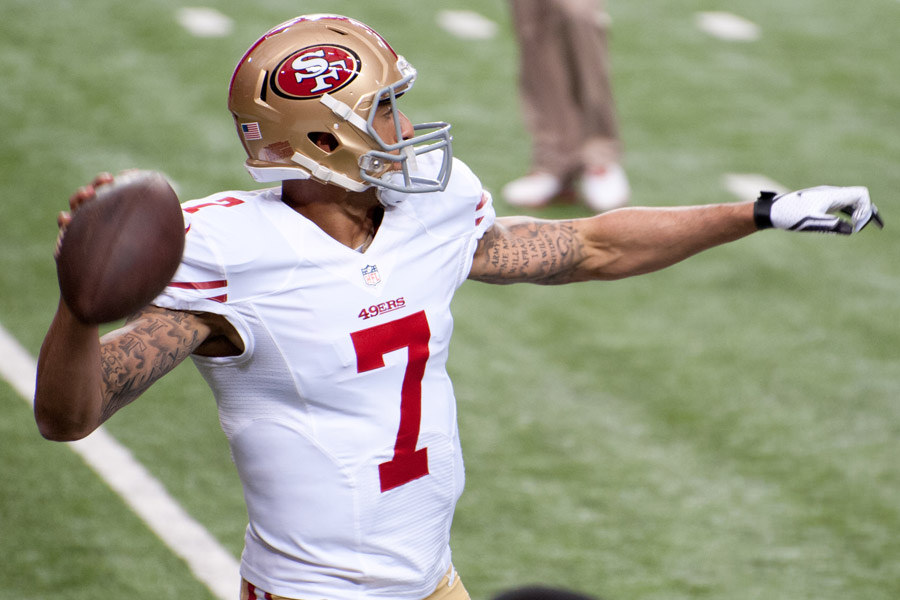In the past few weeks, San Francisco 49ers quarterback Colin Kaepernick has ignited a movement that has spread to the College of William and Mary, protesting police violence against African-Americans during the national anthem, albeit controversially.
Simultaneously, multiple innocent African-American men have tragically been gunned down by police, in, at best, questionable context.
Where do we go from here? Or, more specifically, how do we go from awareness to action here at the College?
Although many disagree with the way the protest has been carried out, few disagree with its intended message.
As of today, Kaepernick and a handful of others scattered throughout the NFL have definitely raised awareness of these issues. The movement has spread around the country, where many sports teams, including members of the William and Mary men’s soccer team, have knelt for the national anthem. Even fellow players who have not protested the anthem, like Carolina Panthers quarterback Cam Newton, have expressed their support for Kaepernick and his sentiments. Newton wrote on his Instagram, “I salute him for standing (in this case kneeling) for something to if not to fix the issues; raise awareness of the issues (sic).” Although many disagree with the way the protest has been carried out, few disagree with its intended message.
But, as I’m writing this, there are riots on the streets of Charlotte, after a black man was shot and killed under unclear circumstances Tuesday. Last Friday, an unarmed black man was killed by police in Tulsa. Nothing seems to change when it comes to police brutality in regards to African-Americans.
I’m frustrated with society’s inability to change, at least thus far. But I also believe that the continued conversation about race and its place in American culture and society, will, in time, facilitate change.
As a white male, I need to acknowledge my privilege in order to understand what others are going through. I encourage others to do the same. In doing so it becomes easier to realize that others do not have the same untroubled life that I do, and therefore it becomes easier to sympathize and endeavor to make things better.
Overt racism may not be widespread anymore, but subtler forms of racism are still unfortunately much too common.
America is a place where peaceful protest can have a huge impact. The way we make our country and the world a better place is by pushing the conversation on inequality in America. Overt racism may not be widespread anymore, but subtler forms of racism are still unfortunately much too common. The best way to combat this is to talk about race and its place in our society.
Students in positions of authority at the College need to continue to speak up. The people who know that their words or actions will be heard, like athletes, must be the ones to continue to hold watch. But responsibility also comes to all of us to keep standing up for what we know is right. What our men’s soccer players did was courageous, now it is up to the rest of the student body to continue to show that same courage.
On Wednesday, at a press conference, Seattle Seahawks cornerback Richard Sherman spoke up, saying “Something needs to be done. And so when a guy takes a knee, you can ignore it. You can say, ‘He’s not being patriotic, he’s not honoring the flag.’ I’m doing none of those things. I’m saying, straight up, this is wrong and we need to do something.”
When athletes such as Sherman, Newton and Kaepernick continue to shine a light on issues facing African-Americans in today’s America, people listen. It is up to the rest of us to keep talking about them, both on campus and back home. We can be those people to do something. Tough conversations like these have the power to change the world.
Email Brendan Doyle at bpdoyle@email.wm.edu.

